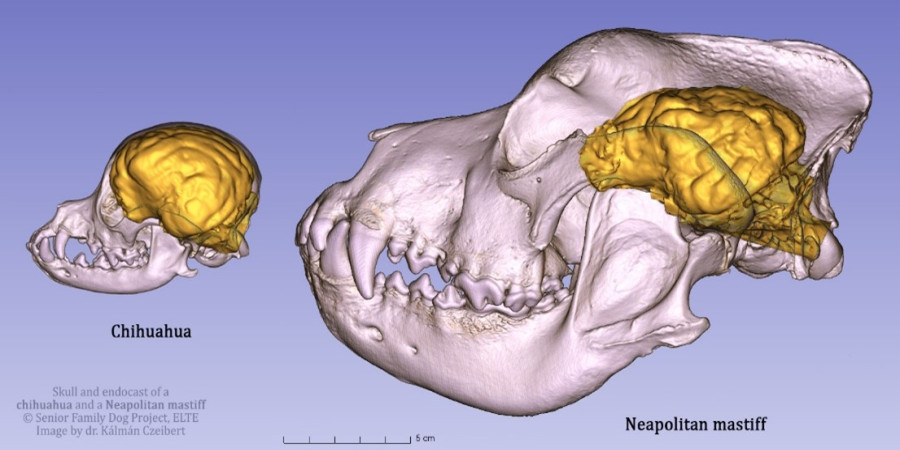

How Big is a French Bulldog's Brain? Understanding Brachycephaly and Canine Cognition
French Bulldogs, with their distinctive flat faces, big eyes, and playful personalities, have become immensely popular companions. But their unique appearance, resulting from a condition called brachycephaly, raises questions about how it might affect their brains and overall cognitive abilities. How big is a French Bulldog's brain, and does their head shape impact their intelligence and behavior?
Brachycephalic Breeds and Brain Anatomy
Brachycephalic dog breeds, including French Bulldogs, Pugs, and Boston Terriers, are characterized by shortened skulls and muzzles. This selective breeding has led to several physical changes, including:
- Reduced Brain Size: Due to the limited space within their skulls, brachycephalic dogs typically have smaller brains compared to other breeds of similar body size.
- Deformed Brain Structures: The compressed skull shape can put pressure on the brain tissue, potentially causing deformities.
- Compromised Respiratory System: Brachycephalic Airway Syndrome is common, resulting in breathing difficulties.
Potential Impact on Cognition & Behavior
The anatomical changes in brachycephalic dogs like French Bulldogs have potential consequences for their brain function, behavior, and overall well-being:
- Cognitive Impairment: Studies suggest slight differences in learning and memory performance in some brachycephalic breeds compared to non-brachycephalic dogs. However, research is ongoing.
- Behavioral Changes: Brachycephalic dogs can be prone to anxiety, sleep disorders, and discomfort due to breathing difficulties.
- Neurological Issues: In severe cases, the pressure on the brain can lead to neurological problems like seizures or disorientation.
- Reduced Lifespan: Unfortunately, brachycephalic dogs, including French Bulldogs, often have shorter lifespans due to their health complications.
Are French Bulldogs Intelligent Dogs?
Despite the potential challenges associated with their skull shape, French Bulldogs are considered trainable and adaptable dogs. They can learn basic obedience commands, tricks, and form strong bonds with their humans. It's important to understand that:
- Individual Variation Exists: Like all dogs, French Bulldogs have individual differences in personality and cognitive ability.
- Training Methods Matter: Positive reinforcement training methods that focus on patience and rewards are essential for these pups.
- Environment and Stimulation: A nurturing environment with mental and physical stimulation can promote their overall well-being and cognitive health.
Ethical Considerations
The health issues faced by brachycephalic dogs raise ethical concerns about breeding practices that prioritize appearance over well-being. Prospective pet owners should consider the ethical implications and research alternative breeds with less extreme traits.
Caring for a French Bulldog
If you own or are considering adopting a French Bulldog, here's how to support their brain health and well-being:
- Seek Veterinary Care: Regular checkups help monitor for potential health issues.
- Maintain a Healthy Weight: Avoid obesity, which further strains their compromised respiratory system.
- Mental Stimulation: Provide toys, puzzle feeders, and training to keep their minds engaged.
- Manage Heat Stress: French Bulldogs are prone to overheating; take precautions during hot weather.
References:
- Brachycephalic Airway Obstructive Syndrome in Dogs
- [The Welfare of Brachycephalic Dogs]
- [Impact of Facial Conformation on Canine Health] (https://journals.plos.org/plosone/article?id=10.1371/journal.pone.0219918)
Conclusion
While French Bulldogs have smaller brains due to their brachycephalic skull shape, this doesn't necessarily mean they are less intelligent. They can be affectionate and trainable companions when provided with proper care and support. Understanding their anatomy, potential challenges, and the ethical concerns surrounding breeding them is crucial for responsible dog ownership.
Popular articles

Apr 11, 2024 07:40 PM

May 25, 2024 08:09 PM

Apr 11, 2024 07:22 PM

Apr 10, 2024 07:59 PM

Mar 14, 2024 07:53 PM
Comments (0)